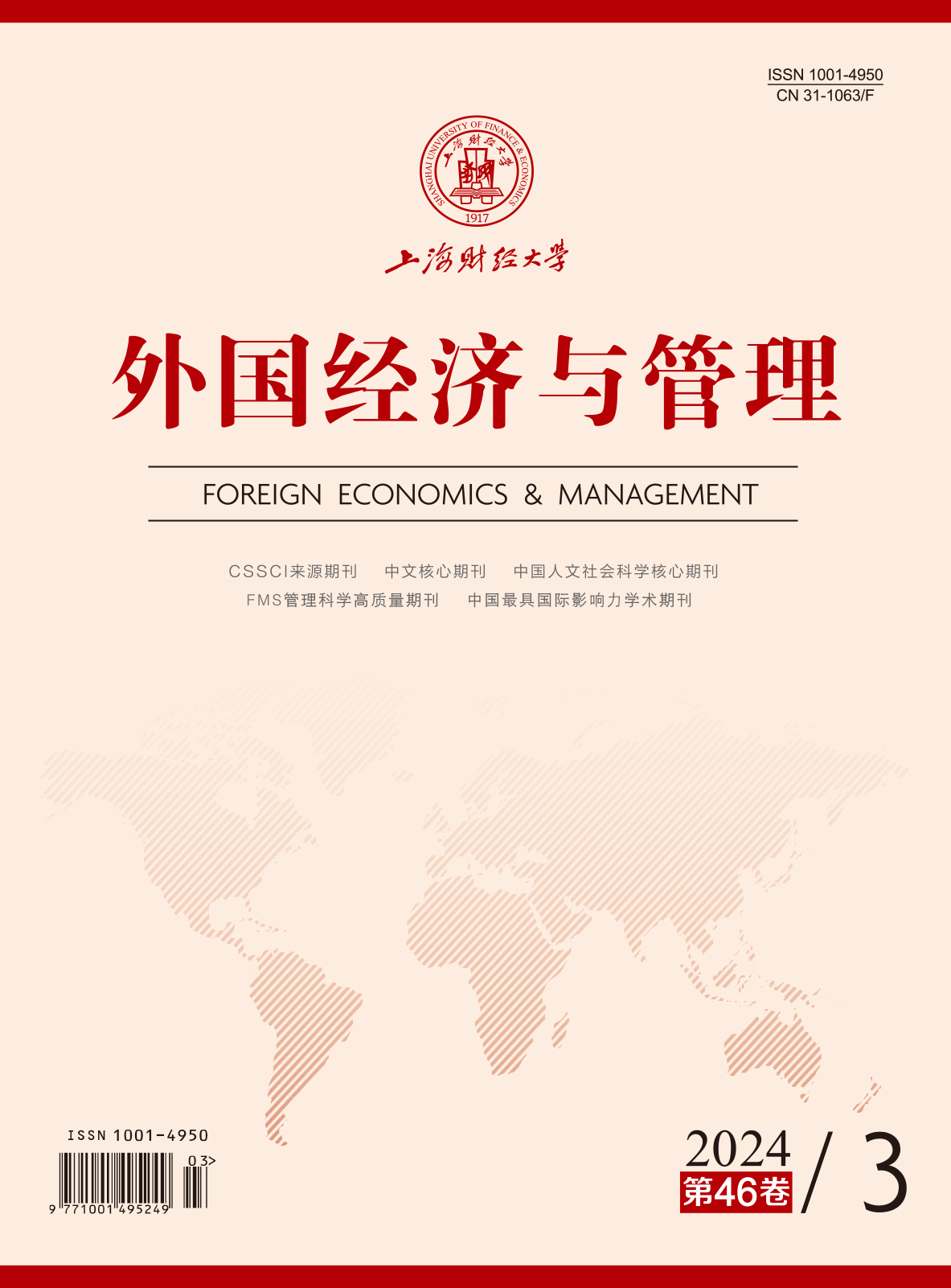本文基于家族代理理论,以研发投入和盈余操纵为切入点,探究姻亲涉入管理对家族企业冒险性决策的影响。文章以中国家族上市公司的数据进行实证检验,结果表明,姻亲担任公司高管会导致家族企业的研发投入动力显著降低,而盈余操纵动机则显著增强;改变姻亲成员的家族代理人身份,允许其持有公司股份既可以强化姻亲管理者的研发投入动力,又能弱化其盈余操纵动机。进一步的分析表明,涉入管理的不同姻亲结构在研发投入决策上持有一致的谨慎态度,但对于短期导向的投机决策存在差异化的风险偏好,体现为近姻亲涉入管理的盈余操纵动机更强;后代参与治理将弱化姻亲消极对待公司研发的动机,但会助长姻亲的盈余操纵;期望落差状态则不仅弱化姻亲消极对待研发的动机,而且能够显著遏制姻亲的盈余操纵动机。本文从家族成员组合异质性的视角深入分析家族系统在公司治理中的作用机制,为家族治理研究打开了新的思路,也为促进姻亲有效参与企业决策提供了实践启示。
姻亲涉入下的家族企业冒险性决策:研发投入还是盈余操纵?
摘要
参考文献
4 费孝通. 乡土中国[M]. 北京: 生活·读书·新知三联书店, 1985.
12 吴溪, 张俊生. 上市公司立案公告的市场反应及其含义[J]. 会计研究, 2014, (04): 10-18,95. DOI:10.3969/j.issn.1003-2886.2014.04.002
17 Amore M D, Miller D, Le Breton-Miller I, et al. For Love and Money: Marital Leadership in Family Firms[J]. Journal of Corporate Finance, 2017, 46: 461-476. DOI:10.1016/j.jcorpfin.2017.09.004
18 Anderson R C, Reeb D M. Founding‐family ownership and firm performance: evidence from the S&P 500[J]. The journal of finance, 2003, 58(3): 1301-1328. DOI:10.1111/1540-6261.00567
19 Bergstresser D, Philippon T. CEO Incentives and Earnings Management[J]. Journal of Financial Economics, 2006, 80(3): 511-529. DOI:10.1016/j.jfineco.2004.10.011
20 Bird M, Zellweger T. Relational embeddedness and firm growth: comparing spousal and sibling entrepreneurs[J]. Organization Science, 2018, 29(2): 264-283. DOI:10.1287/orsc.2017.1174
21 Chrisman J J, Patel P C. Variations in R&D Investments of Family and Nonfamily Firms: Behavioral Agency and Myopic Loss Aversion Perspectives[J]. Academy of Management Journal, 2012, 55(4): 976-997. DOI:10.5465/amj.2011.0211
22 Combs J G, Shanine K K, Burrows S, et al. What Do We Know About Business Families? Setting the Stage for Leveraging Family Science Theories[J]. Family Business Review, 2020, 33(1): 38-63. DOI:10.1177/0894486519863508
24 Dyer Jr W G, Dyer W J. Putting the Family into Family Business Research[J]. Family Business Review, 2009, 22(3): 216-219. DOI:10.1177/0894486509333042
26 Ellul A, Pagano M, Panunzi F. Inheritance law and investment in family firms[J]. American Economic Review, 2010, 100(5): 2414-2450. DOI:10.1257/aer.100.5.2414
27 Face E F. The family in business: Understanding and dealing with the challenges[J]. Family Business Review, 1988, (2): 211-220.
28 Fan J P, Yu X. Do Controlling Families Downgrade Corporate Governance? The Roles of Intra-Family Governance[J].2020, In Press.
29 Hoskisson, R. E., Chirico, F., Zyung, J, Gambeta, E. Managerial Risk Taking: A Multitheoretical Review and Future Research Agenda[J]. Journal of Management, 2017, 43(1): 137-169. DOI:10.1177/0149206316671583
30 Jensen M, Meckling W. Theory of the Firm: Managerial Behavior, Agency Costs and Ownership Structure[J]. Journal of Financial Economics, 1976, 3(4): 305-360. DOI:10.1016/0304-405X(76)90026-X
31 Makri M, Lane P J, Gomez-Mejia L R. CEO Incentives, Innovation, and Performance in Technology-Intensive Firms: A Reconciliation of Outcome and Behavior-Based Incentive Schemes[J]. Strategic Management Journal, 2006, 27(11): 1057-1080. DOI:10.1002/smj.560
32 Saito T. Family firms and firm performance: Evidence from Japan[J]. Journal of the Japanese and International Economies, 2008, 22(4): 620-646. DOI:10.1016/j.jjie.2008.06.001
33 Santiago A L. The Family in Family Business: Case of the In-Laws in Philippine Businesses[J]. Family Business Review, 2011, 24(4): 343-361. DOI:10.1177/0894486511419294
34 Schulze W S, Lubatkin M H, Dino R N. Exploring the agency consequences of ownership dispersion among the directors of private family firms[J]. Academy of Management Journal, 2003, 46(2): 179-194. DOI:10.2307/30040613
35 Sharma A. Professional as agent: Knowledge asymmetry in agency exchange[J]. Academy of Management review, 1997, 22(3): 758-798. DOI:10.2307/259412
36 Stewart A. Help one another, use one another: Toward an anthropology of family business[J]. Entrepreneurship Theory and Practice, 2003, 27(4): 383-396. DOI:10.1111/1540-8520.00016
37 Sun P, Hu H W, Hillman A J. The dark side of board political capital: Enabling blockholder rent appropriation[J]. Academy of Management Journal, 2016, 59(5): 1801-1822. DOI:10.5465/amj.2014.0425
38 Stockmans A, Lybaert N, Voordeckers W. Socioemotional wealth and earnings management in private family firms[J]. Family Business Review, 2010, 23(3): 280-294. DOI:10.1177/0894486510374457
39 Yu X, Stanley L, Li Y, et al. The invisible hand of evolutionary psychology: The importance of kinship in first-generation family firms[J]. Entrepreneurship Theory and Practice, 2020, 44(1): 134-157. DOI:10.1177/1042258719838256
引用本文
贺小刚, 戚阳阳, 舒心. 姻亲涉入下的家族企业冒险性决策:研发投入还是盈余操纵?[J]. 外国经济与管理, 2024, 46(3): 69-87.
导出参考文献,格式为:





 6200
6200  5347
5347

